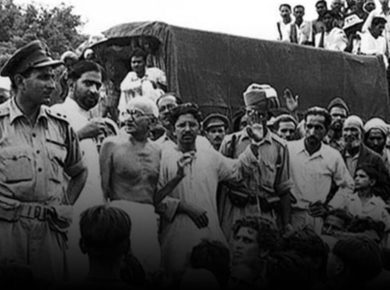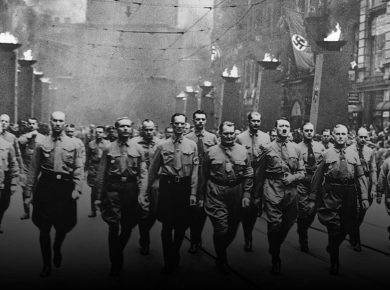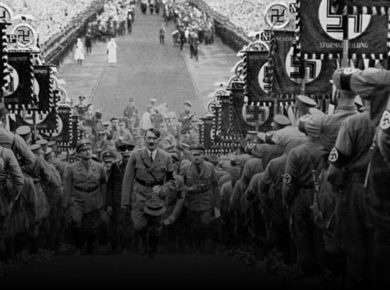Modern Era: Renaissance and Reformation
From 14th to 17th century some important developments like Renaissance and Reformation took place, which resulted in an end to Feudal order.
Renaissance (Rebirth) – 14th to 17th Century
Renaissance began as a movement to revisit the old scriptures and learn about ancient Greece and Rome but soon turned into a movement of new ideas in art, religion, literature, philosophy, science and politics.
It resulted in decline of Church’s influence in the intellectual & cultural life of Europe. While the Church talked about peace in life after death, the Renaissance thinkers attacked the Church and talked about happiness on this earth.
Humanism was at the core of Renaissance. It meant focus on Humanity, rather than Divinity. Renaissance came to imply a new thinking, which was humanistic and rational, rather than superstitious.
Renaissance resulted in ascendance of local European languages in literature, instead of Latin. Thus, it helped in linguistic development and thus, in development of national consciousness. The invention of Printing Press in first half of 15th century led to further spread of education & new ideas.
Scientific Revolution was also a product of the transformation and began towards the end of the Renaissance era (i.e., around 17th century) and continued till late 18th century. The views of the Church regarding physical events were discarded. Only those phenomena were accepted which could be explained and verified through methods of scientific observation.
The Scientific revolution paved the way for a new movement called Enlightenment that began in 1600s and reached its height in mid 1700s. Enlightenment stressed on ideas of self-rule, basic human rights & democracy.
Thus, we shall see that Enlightenment played a very important role in the American Revolution (1776), the French Revolution (1789) and the Russian Revolution (1905, 1917).
Reformation – Early 16th Century
Protestant reformation was a movement against the practices & authority of the radical Catholic Church. Protestant leaders started setting up Protestant Churches in different countries of Europe. Under Martin Luther, a monk who opposed the Letters of Indulgence and other Church evils, the first Protestant Church was setup in Germany (from 1520-1545) under the King’s support.
Nationalism also played a role as the people now despised the authority of Catholic Church located in Rome. In England, Queen Elizabeth I made the Church of England, the official church by declaring its independence from the Church in Rome and adopting some Reformation principles.
Protestant churches adopted the use of language spoken by the people, rather than the elitist Latin. The Bible was translated into local languages.
The use of local languages further increased national consciousness & thus Renaissance and Reformation can said to be a precursor to nationalism in Europe.
Reason was popularized as more important than Religion & by 17th century, half of Europe had setup their own Protestant Churches.
Catholic Reformation or Counter Reformation (late 16th century)
A reform process was initiated by the Catholic Church in response to the rising popularity of the Protestant Churches. In Spain, the reformers formed an organization of clergymen to work as “Soldiers of Jesus”. Members of this organization came to be known as Jesuits and they went to France and Germany to win back followers. They also setup missions in India, China, Africa and America.
After these reformations, religious wars began among the followers of both sects and many followers were killed on both the sides. The violence against Protestants in England resulted in their migration to North America where their colonies later laid foundation of USA.
In England, due to the pro-Catholic religious policies of King Charles I, religious violence merged into the English Civil War (1642-51) which was fought between the Parliamentarians and the pro-Monarchy Royalists over the form of government.
Beginning of International Trade & Colianism
Voyages of Discovery (at end of 15th century) also characterized the beginning of the Modern Age in Europe. This changed the economy of many European nations as with the discovery of these new lands, Colonialism began its march.
Rise of Absolute Monarchies
The King-Merchant nexus and the decline of Feudalism by the end of Middle Ages (600 AD to 1500 AD) helped the Kings in consolidating their hold on power.
Strong rulers in form of Absolute Monarchies rose by subjugating the Feudal Lords and defying the Church’s political interference.












2 comments
Thanks alottt
thankyou very much to share the knowledge.